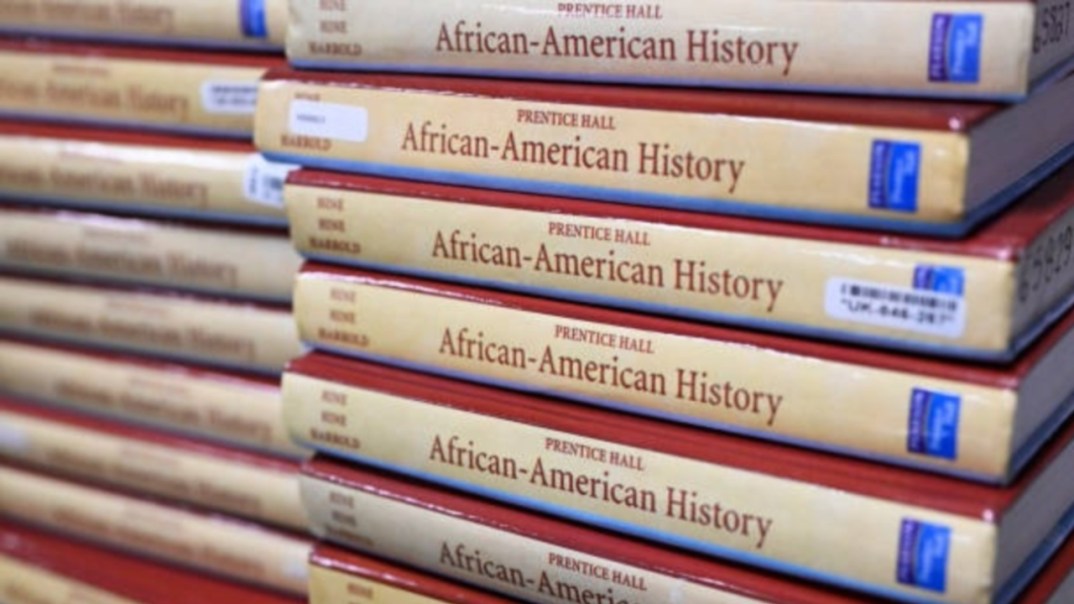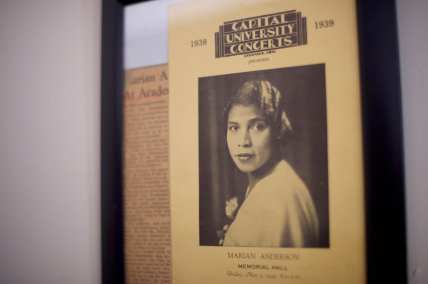Why teaching honest history is paramount
OPINION: We must urgently stand up and speak out against conservative-led efforts to whitewash or erase Black history, which is truly American history.

Editor’s note: The following article is an op-ed, and the views expressed are the author’s own. Read more opinions on theGrio.
While the devastating impact of slavery can never be fully comprehended by those who have never experienced its brutality and inhumanity, most Americans recognize the horror of our country’s Original Sin. Slavery in the U.S., which persisted for well over two centuries, has had a devastating impact on millions of Black people that reverberates to this day.
And yet, in the face of the endless stories and statistics detailing the atrocities of slavery in America, there are some who challenge its severity. In July, Florida’s State Board of Education approved new standards for social studies curriculum for middle-grade students that will include language such as: “slaves developed skills, which, in some instances, could be applied for their personal benefit” and “acts of violence perpetrated against and by African Americans.” So, important moments in their own state’s history, such as the Ocoee massacre in 1920 — in which a white mob attacked a group of Black residents who were trying to vote and killed at least 50 people — will be presented as both-side-ism.
While the decisions in Florida are indefensible and upsetting, it is unsurprising. The Sunshine State has led the charge in defending white fragility by silencing the stories, perspectives, and lived experiences of communities of color. Earlier this year, the DeSantis administration made headlines by announcing that they would reject a high school Advanced Placement course on African American studies, labeling it as “indoctrination.”
Continuing the governor’s agenda to dismantle education, Florida announced in August that its K-6 schools will begin using free “educational” videos produced by PragerU, which is not an accredited university, but rather a conservative group that creates free materials created to counteract the “woke agendas infiltrating classrooms.” Other states are considering following suit. So, who’s really doing the indoctrinating here?
Historians estimate that as many as seven million enslaved people were brought in chains to the “New World” in the 18th century alone, and historian J. David Hacker estimates that the total number could well exceed 10 million. For African Americans who lived in bondage, their lives were filled with unspeakable tragedy: deliberately separated from their family members, forced to live in horrific conditions and regularly experienced indescribable brutality — including rapes, innumerable forms of physical trauma and death. Infant and child mortality rates for enslaved children were twice that of white children, and over half of all Black infants died within the first year of life. Estimates show that the average life expectancy of enslaved individuals during the era of slavery in the United States was in the 20s, compared to the 40s for white Americans.
Florida is neither the first nor the last state that is attempting to erase and rewrite America’s history. Less than a decade ago, Texas history courses included textbooks that referred to enslaved people as “workers” and “immigrants.” Texas public charter schools also used textbooks as late as 2018 that describe the generosity and kindness of slave masters such as this passage: “While there were cruel masters who maimed or even killed their slaves (although killing and maiming were against the law in every state), there were also kind and generous owners … Many [enslaved people] may not have even been terribly unhappy with their lot, for they knew no other.” And that’s just scratching the surface. In 2018, the Southern Poverty Law Center Southern Poverty Law Center published a report — in which researchers looked at more than a dozen popular U.S. history books and surveyed thousands of students and teachers across the country — that found widespread ignorance about slavery and the antebellum South, with more than half (58%) of surveyed educators reporting that their textbook’s coverage of slavery was inadequate.
It’s not just about the teaching of slavery, either. Across the country, many conservative-led states, such as Arkansas to Virginia, have passed legislation banning books, silencing the teaching of “divisive concepts,” and much more. In Ed Trust’s forthcoming report, “The Search for More Complex Racial and Ethnic Representation in Grade School Books,” researchers, after reviewing 300 books, found significant racial and ethnic under-representation in school-assigned reading materials — and when underrepresented individuals are included in books, they are often depicted in negative and stereotypical ways. All of our students, regardless of race or ethnicity, deserve better.
President Biden has spoken about the “continued battle for the soul of the nation.” Indeed, we find ourselves in that conflict. We must urgently stand up and speak out against these conservative-led efforts to silence underserved communities and undo the hard-fought racial and civil rights progress our nation has achieved. How will you show up?

Blair Wriston serves as senior manager, government affairs at the Education Trust, driving legislative and community advocacy for Black and brown students in the P-12 system. Prior to joining the Education Trust, Blair worked on Capitol Hill for nearly five years in the office of U.S. Rep. A. Donald McEachin, D-Va.
TheGrio is FREE on your TV via Apple TV, Amazon Fire, Roku and Android TV. Also, please download theGrio mobile apps today!


